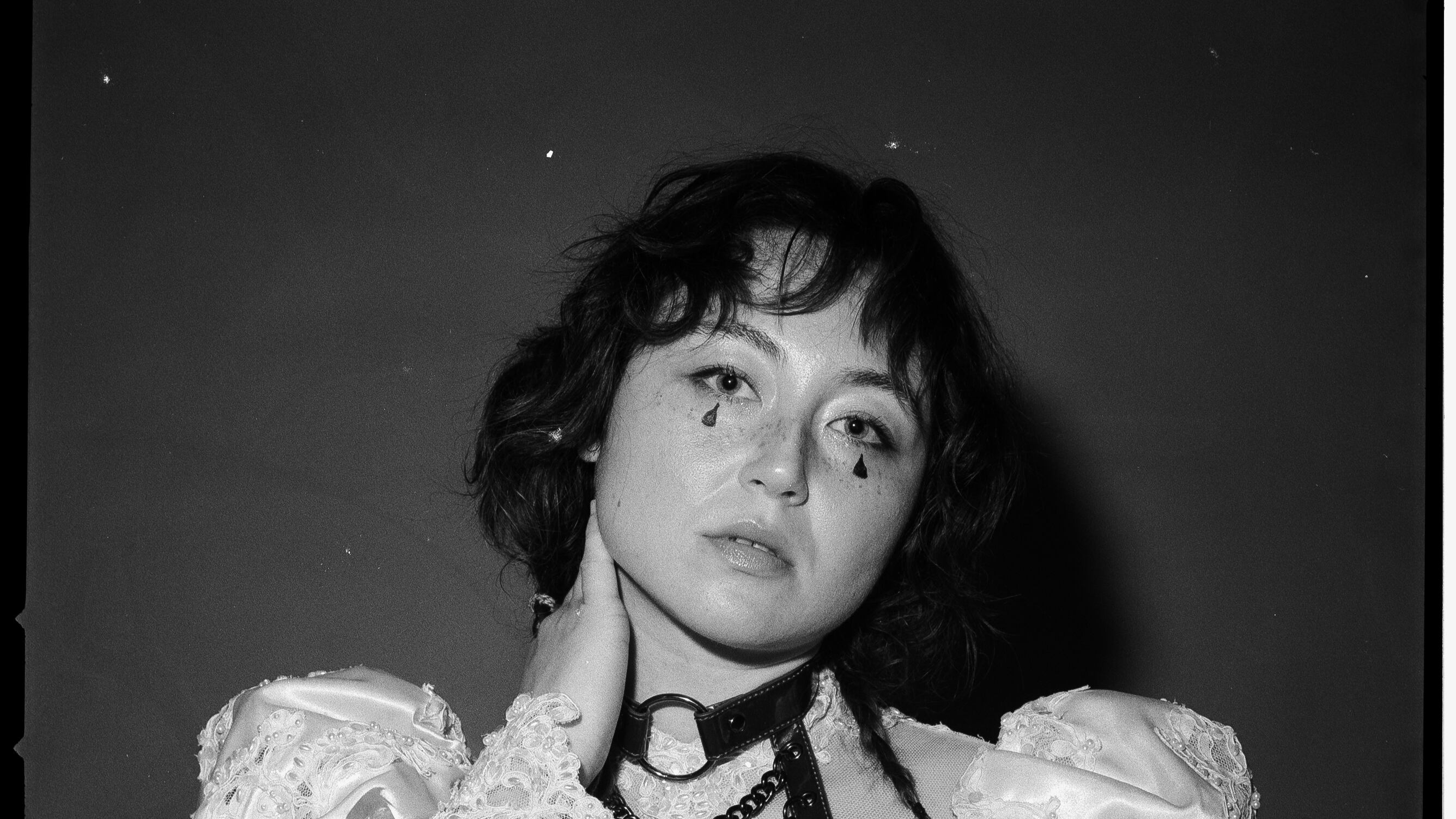If you demand that your favorite bands dabble in hazy symbolism, you’re probably not a fan of NONBINARY GIRLFRIEND, the indie pop-punk group that has transfixed Portland concertgoers with their emotional directness.
“Some artists I know are talking metaphorically with a lot of their songs,” says Anaïs, the vocalist, guitarist and Omnichord virtuoso who leads the ensemble. “A lot of the time, I can be more straightforward because I am neurodivergent, and it just makes more sense to me. And I think it makes sense to other people who see the world a little more like me.”
In the title track of NONBINARY GIRLFRIEND’s debut album, Big and Kind, Anaïs sings with tornadolike force that underscores the song’s core philosophy: that kindness and smallness are never the same thing.
The road to that revelation was long, and it started with a surprising origin tale. “I actually got the band together to impress someone,” Anaïs says. That someone was Community and GLOW actor Alison Brie, who co-wrote and starred in the Amazon film Somebody I Used to Know—”a Jeff Bezos original,” Anaïs jokes—which featured characters based on Anaïs’ now-dissolved band Cry Babe.
Anaïs became friendly with Brie and scored a small role in the film. “They were like, ‘Oh, maybe we could come to a show that you’re playing around Halloween,’” Anaïs recalls. “I was like, ‘Oh my God! Alison Brie and her husband Dave Franco might come to my show. I need a band!’”
Brie and Franco never came to a show, but Anaïs did form NONBINARY GIRLFRIEND—and sought to capture the essence of their own identity in the group’s now-iconic name.
“I named the band NONBINARY GIRLFRIEND because that’s how I feel,” says Anaïs, who uses they/them pronouns. “I do still sometimes identify with the term ‘girlfriend’—but never ‘woman’ and never ‘girl,’ ew, don’t like those—because I have been socialized in my life with people assuming my gender as female. I am still a part of the female struggle in this way I’m not allowed to opt out of because of the way that I look.”
NONBINARY GIRLFRIEND’s music is part of that struggle—perhaps especially “Body” a seven-minute song and accompanying music video in which Anaïs is encircled menacingly by the hands of unseen figures. Anaïs describes performing the song as “like I’m breaking my heart open every time I play it.”
Anaïs doesn’t specifically discuss the inspiration for “Body,” but does say, “I could go on just about the pervasive issue of sexual violence against AFAB [assigned female at birth] people. It is disgusting, it is persistent, it has changed my life for the worse forever. My brain will never go back to the way it was before that harm was done to me.”
They add, “That is a huge part of my music—talking about that. I feel like when we get eyes on systemic issues like that…it just empowers people to be able to address it more in their inner circles, where it’s the most insidious and the most hard to call out sometimes.”
NONBINARY GIRLFRIEND’s music is ruthlessly open in its portrayals of oppression and despair (the stabbing drumbeats and bellowed lyrics—”This has been the worst moment of my life so far”— of “Worst Day,” for instance, have the visceral force of a medieval lament). Yet it is also driven by a desire to nourish, as fans of the profoundly empowering “Big and Kind” can attest. (It’s likely helping listeners through painful experiences the way artists like Mitski and Girlpool once did for Anaïs.)
“I’ll be honest, I was on mushrooms, and I had this breakthrough idea and I wrote it down,” Anaïs says. “I literally wrote the lyrics to the song: ‘Being kind is not the same as being small. Many times kindness requires you to be big and tall.’”
Anaïs describes being “taught to shrink myself, and that that was kindness. And I wasn’t taught that it is kind to share your boundaries with people. That’s not you being mean to them. That’s telling them how it is appropriate to interact with you so that ultimately you can strengthen your relationship and be better friends, have more genuine intimacy.”
The feeling of intimacy—of truths shared, of souls bared—is the heart of NONBINARY GIRLFRIEND (which also features guitarist Oak Alger, drummer Eric Ambrosius and bassist Sei Harris). As is Anaïs’ candor, not only about who they are as an artist, but as a human being.
“There were times, early on, when I felt like I kind of had to pigeonhole myself into this idea of what nonbinary people are,” Anaïs says. “I had to always be androgynous, and I didn’t want to wear dresses or skirts or anything that was flamboyant at all really.”
And now? “Now I feel like I’m at a really beautiful place with myself, where I feel like I can accept all the parts of me that are coming up,” Anaïs says. “And if I want to have a necklace, have accessories and just be big and take up space visually, now I’m finally comfortable enough with myself to do that.”
Listed on 8.2% of Ballots
“I’m also a huge fan of Nonbinary Girlfriend, who I had the pleasure to share a bill with recently. Anaïs’ vocals and songwriting are so powerful and emotive, and I love the presence they bring onstage.” —Caroline Jackson, Pool Boys
